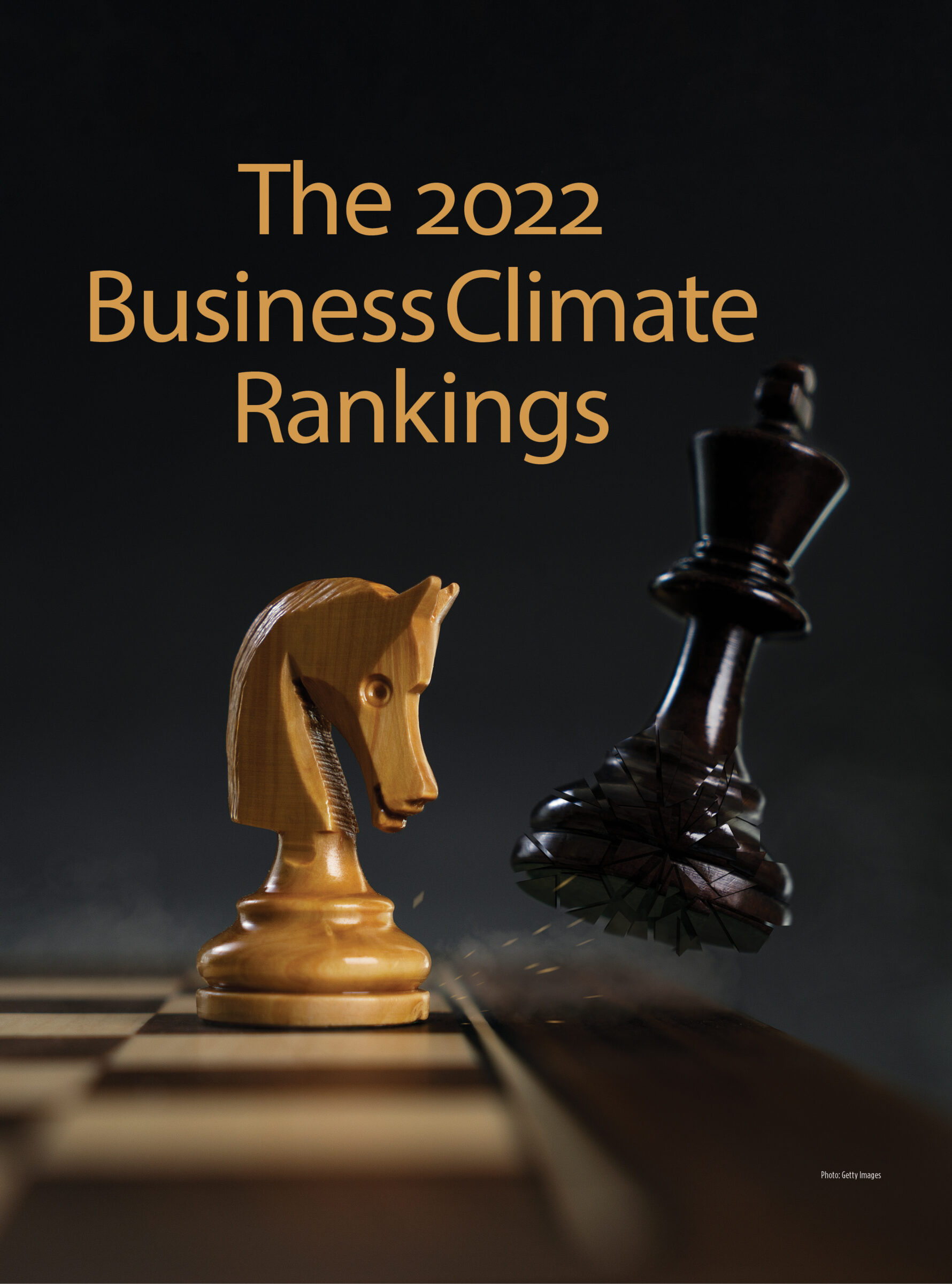The Georgia-North Carolina business climate rivalry was relegated to the runner-up level in this year’s ranking of the best state business climates. Virginia, a frequent top 10 finisher in Site Selection’s annual ranking, won first place over Georgia, a recent eight-consecutive-year winner. Texas finished in third place. North Carolina and Arizona round out the top five state business climates.
Part of the index used to determine the ranking is a survey of site selectors who were asked to rank the states in order of attractiveness based on their experience of locating projects in them. Virginia placed 11th in that category, meaning it did very well in the other components to claim first place overall (see the methodology on page 113). Tennessee, North Carolina and Georgia were the top three states according to survey respondents (see the top 10 states chart on page 102).
The same executives were asked to prioritize their site location criteria, which reveals the attributes they consider to be present in states with a strong business climate. Workforce skills, meaning availability of skills their companies require today and in the future, is the most important, as it was in last year’s tally. The tax climate and workforce development resources tied for second (see the full list on page 111).
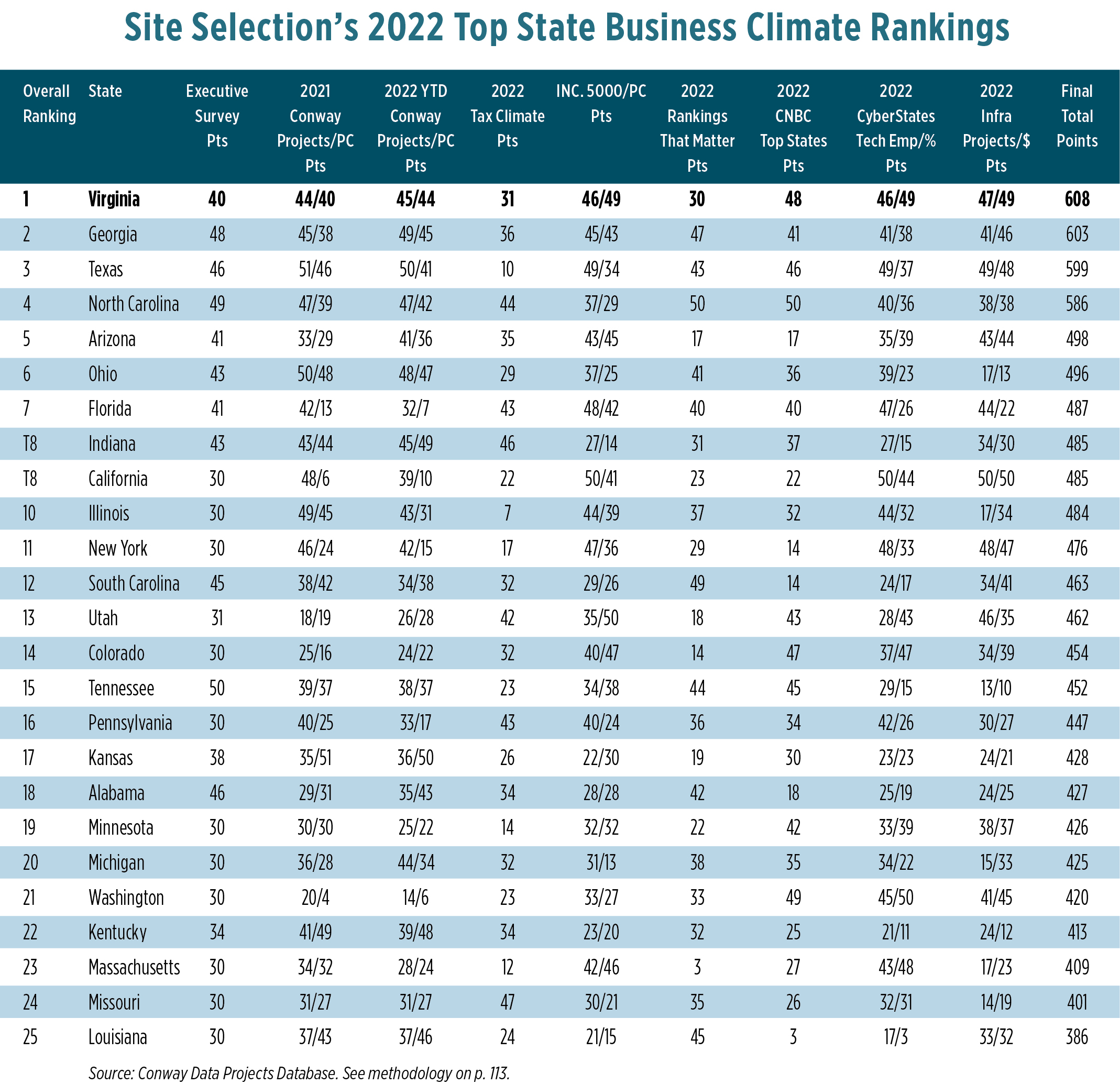
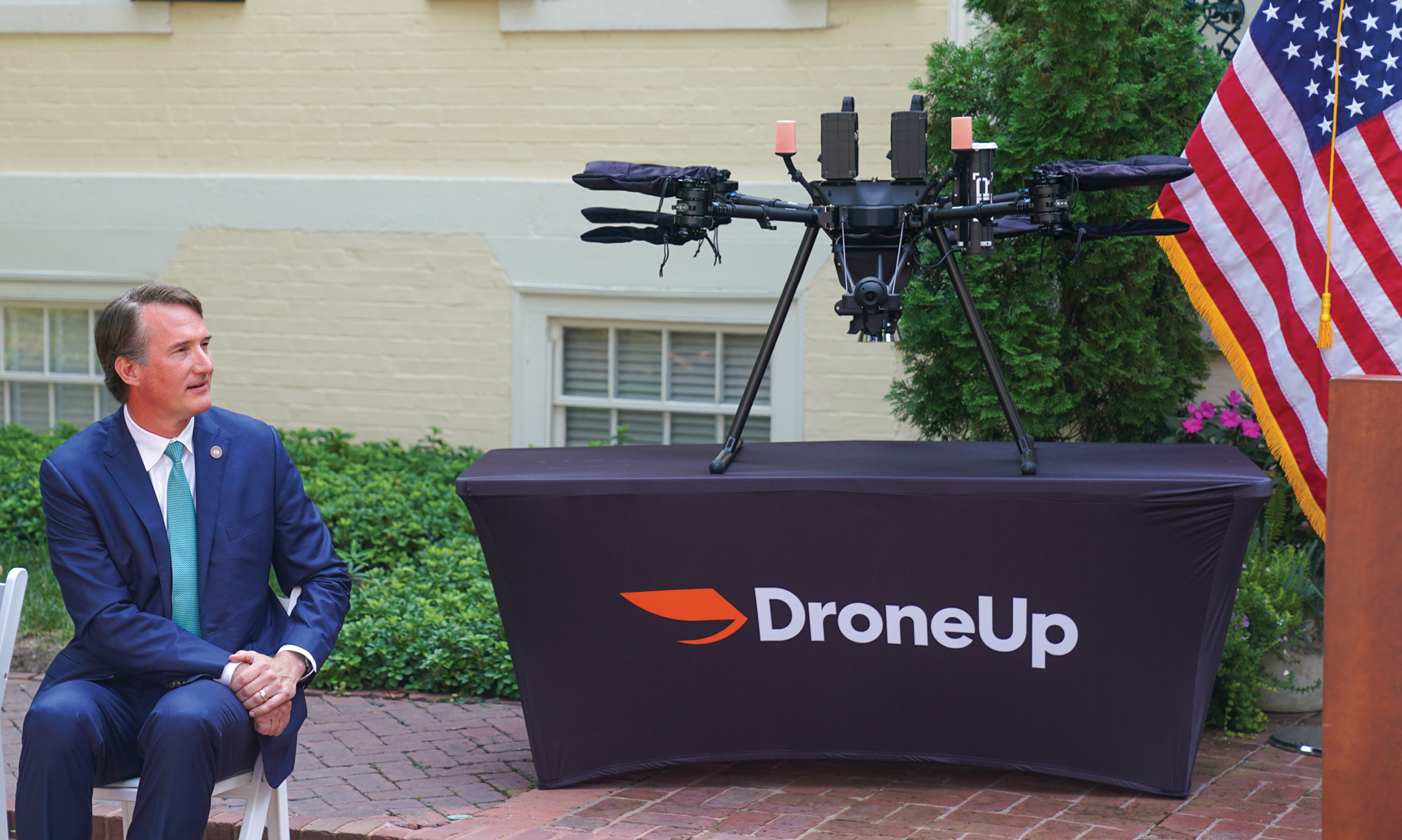
Governor Glenn Youngkin at DroneUp’s $27-million expansion announcement in Richmond on August 24, 2022.
Photo by Christian Martinez | Office of Governor Glenn Youngkin
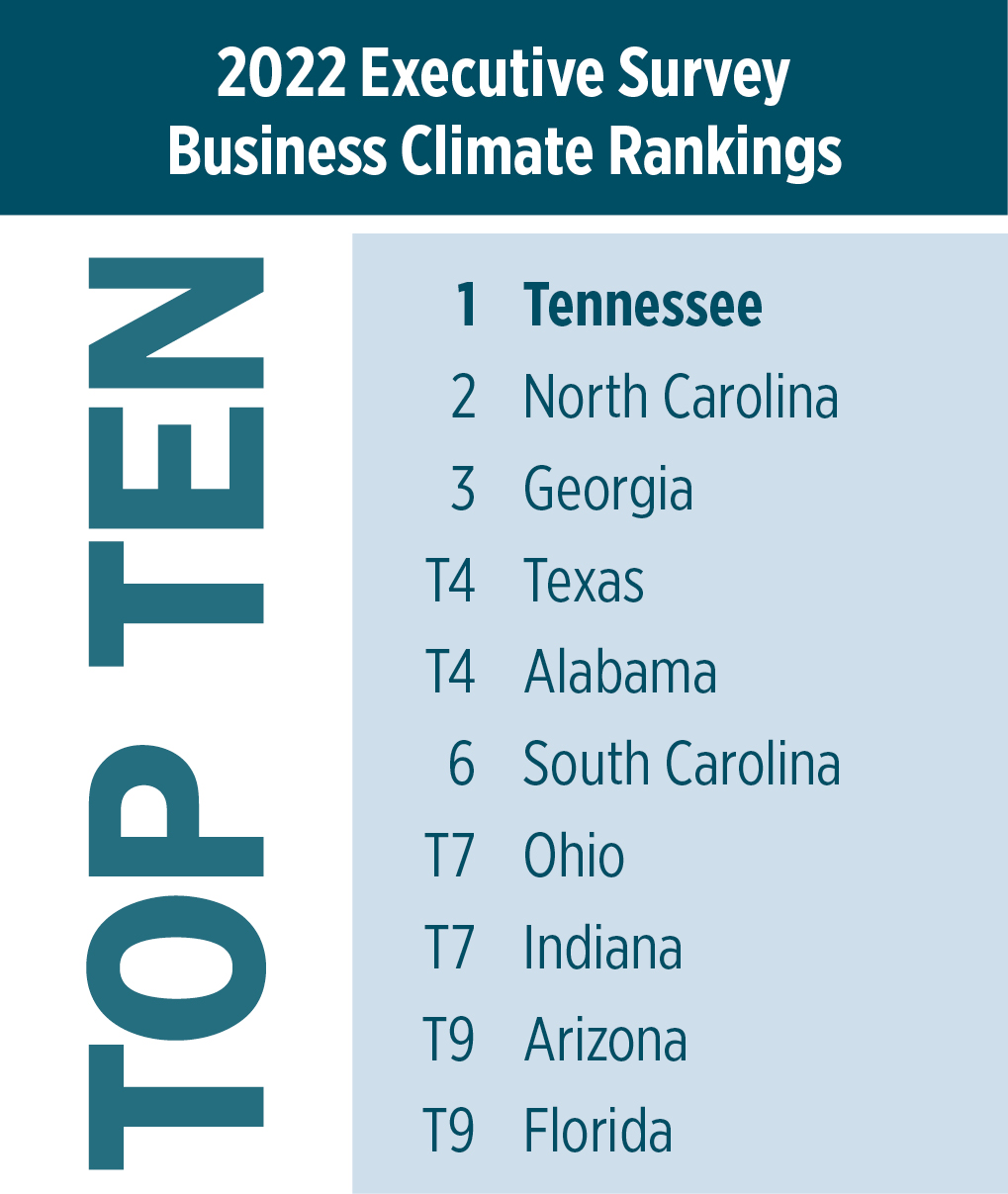 Governor Glenn Youngkin has only been in office since January, but he wasted no time getting to work on tasks that collectively contribute to Virginia’s desirability as a location for business and industry. “I get very involved in bringing investment to Virginia,” he tells Site Selection. “I come to this role with the perspective of a business leader, so I have a keen understanding of what companies are looking for.” Prior to being elected in 2021, Youngkin spent 25 years at investment firm The Carlyle Group, where he most recently was co-CEO.
Governor Glenn Youngkin has only been in office since January, but he wasted no time getting to work on tasks that collectively contribute to Virginia’s desirability as a location for business and industry. “I get very involved in bringing investment to Virginia,” he tells Site Selection. “I come to this role with the perspective of a business leader, so I have a keen understanding of what companies are looking for.” Prior to being elected in 2021, Youngkin spent 25 years at investment firm The Carlyle Group, where he most recently was co-CEO.
Three Roles for the Chief Business Development Officer
“Companies make location decisions not for one or two or three years, but for 30 or 40 or 50 years, if not longer,” says the governor. “They have to have confidence that they are in an environment that will provide them long-term stability, a long-term partnership. Step one for me is to make sure we are putting in place frameworks around a tax-friendly world, a business-friendly regulatory environment, an education system that supports the development of the best workforce, safe communities and finally a set of principles about how government is run so that it works for efficiency. We’ve been working on all those fronts.”
Secondly, in the short term, says Youngkin, his role is also making sure the state can quickly deliver what companies require to make investment decisions. These include sites, permitting confidence, workforce development, utilities and ancillary factors that enable companies to meet their schedules for becoming operational. “We have a capture team and a capture strategy that matches the pace at which companies are moving today,” he relates.
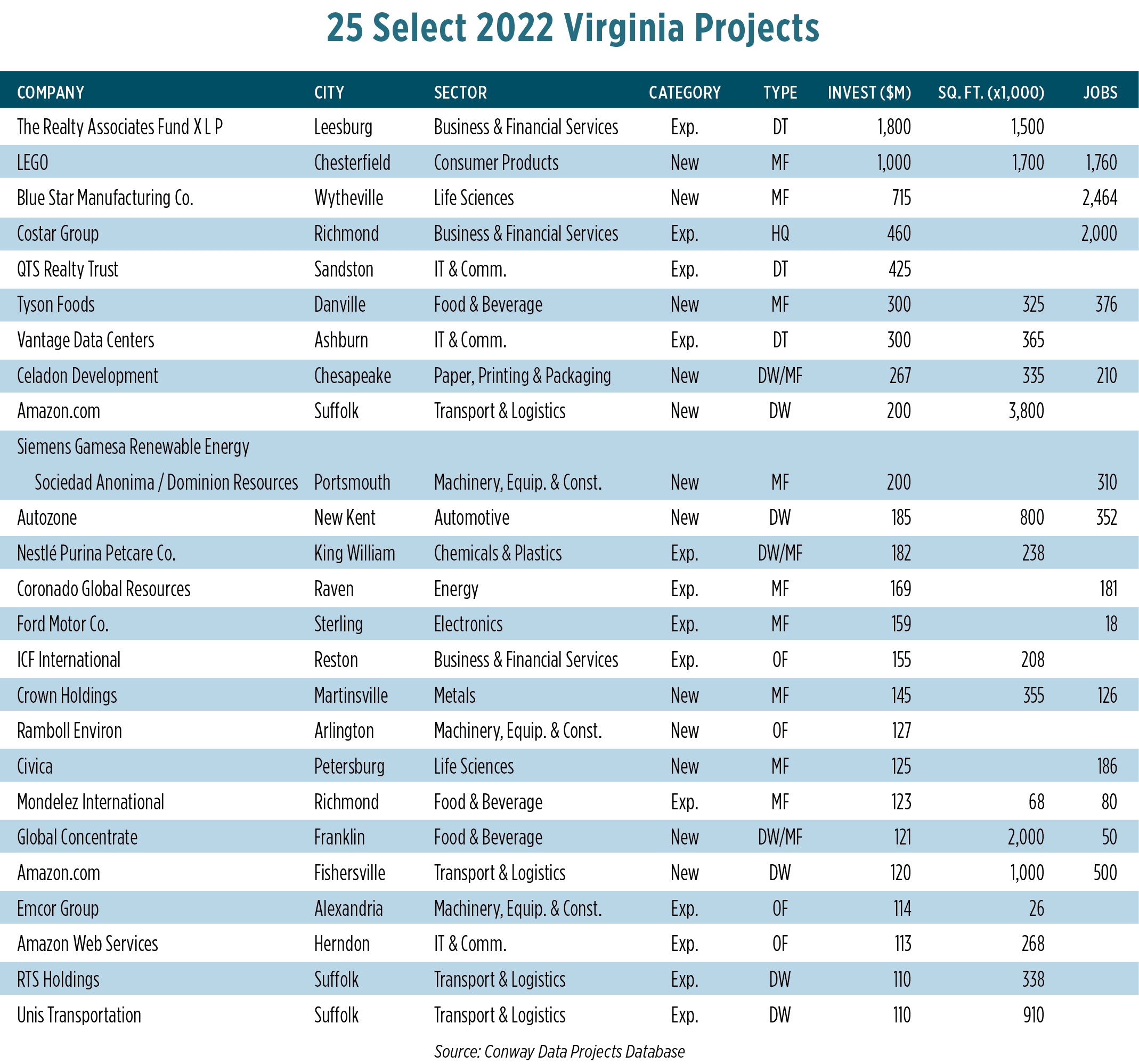
“Third is to bring people together and to sometimes be the lead project manager, which is a role I’m comfortable stepping into occasionally to make sure we are delivering on the second bucket,” says Youngkin. “I dedicate a meaningful amount of my calendar time to economic development activities, making sure we’re thinking through the long-term needs of business. You might think of me as Virginia’s chief business development officer.”
On October 3rd, Gov. Youngkin unveiled the 2022 Virginia Energy Plan in Lynchburg, which focuses on an all-of-the-above approach that harnesses nuclear, natural gas, renewables and new energy sources to satisfy the increasing energy needs of the Commonwealth. The Plan also outlines an increase in nuclear energy and an objective to make Virginia the world’s leading nuclear innovation hub.
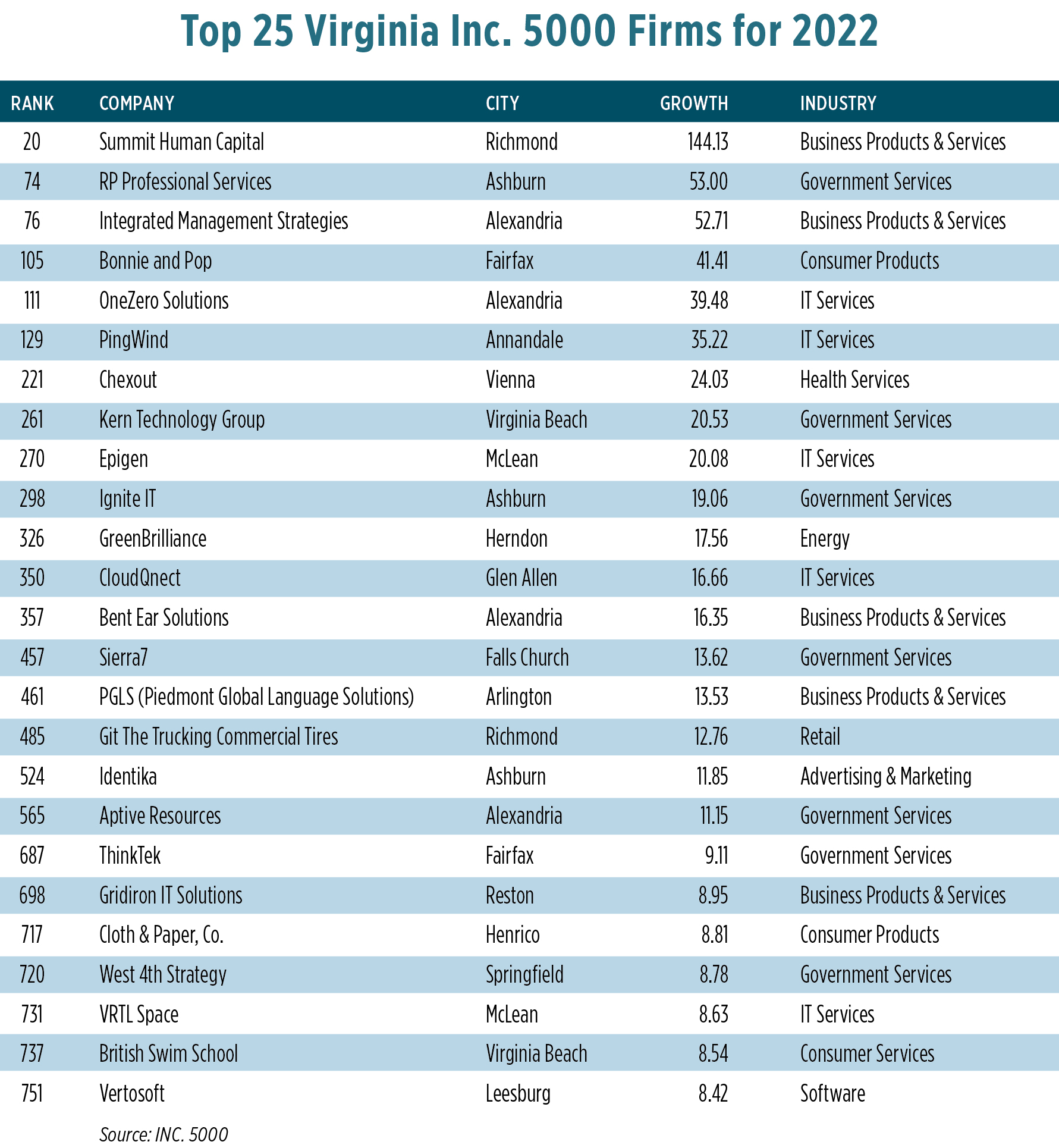
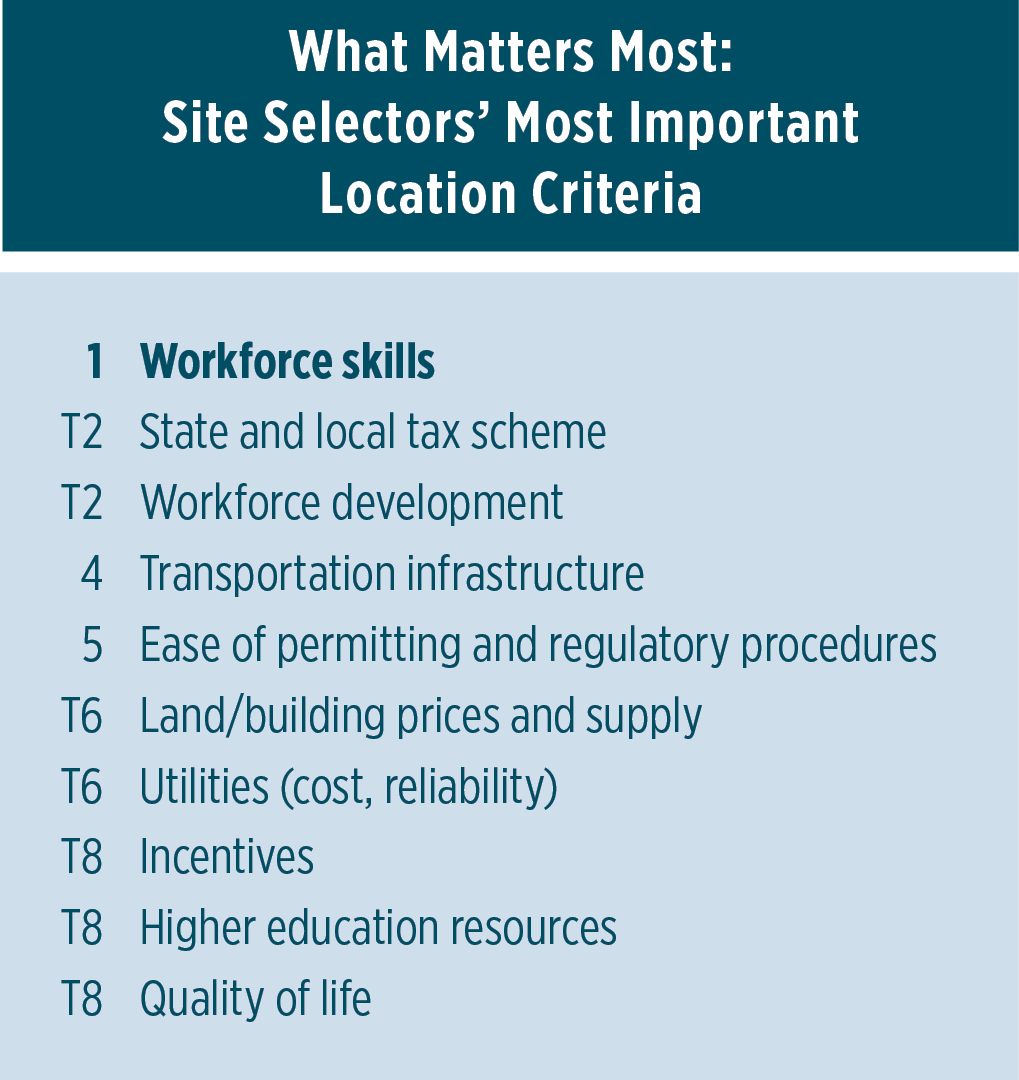 “It’s critically important to lay out a blueprint that fully embraces renewables and the fact that we will have technological innovation along the way that will open new avenues for us that will provide clean power in the frame of needing to have reliable, affordable and clean energy,” he says. “Speaking with business leaders since the announcement, I have heard the most consistent response, which is thanks for bringing common sense to the issue and for the confidence that they will have reliable power and for allowing them to tailor their needs — so that companies with a commitment to 100% clean energy will be confident we will continue to innovate so they can get there. We’ve challenged ourselves to be the first state to have a small, modular nuclear reactor. People see that as an opportunity to be part of the next generation of stable power.
“It’s critically important to lay out a blueprint that fully embraces renewables and the fact that we will have technological innovation along the way that will open new avenues for us that will provide clean power in the frame of needing to have reliable, affordable and clean energy,” he says. “Speaking with business leaders since the announcement, I have heard the most consistent response, which is thanks for bringing common sense to the issue and for the confidence that they will have reliable power and for allowing them to tailor their needs — so that companies with a commitment to 100% clean energy will be confident we will continue to innovate so they can get there. We’ve challenged ourselves to be the first state to have a small, modular nuclear reactor. People see that as an opportunity to be part of the next generation of stable power.
“Feedback has been universally good from businesses that see us embracing this clean power stack, recognizing that innovation can be such a big part of it with nuclear, hydrogen, carbon capture,” the governor continues. “We’re not going to put ourselves in a position where we have to sacrifice reliability at a time when so many companies are drawing on more and more power. They have increasing power demands notwithstanding huge efforts to provide more energy efficiency and energy rationalization. Data centers and indoor agriculture and chip manufacturing and steel manufacturing — these are highly energy-intensive businesses that are growing, and we want to make sure we can meet their needs.”
Workforce Priorities
A strong business climate needs a plentiful labor supply to meet the needs of incoming and expanding companies. Gov. Youngkin makes the case that Virginia can meet those needs as well. “One of the most emphasized areas of our workforce efforts is keeping people here,” he points out. “Starting with our veteran population, we have over 700,000 veterans in Virginia, over 150,000 active duty or reservists in Virginia, and we want to keep them all here. This is an extremely well trained, dedicated and committed group of Virginians who can anchor so many of our workforce initiatives across every industry.”
The governor says recently passed legislation to thank them includes retirement benefit tax cuts and measures to provide spousal support and reciprocity on licenses to allow families to transition into Virginia and to stay. “This package of ways to support our veterans is critically important,” he says, “and I want them to stay here.”
Ranking Methodology
Best states for business according to a site selectors survey; total qualifying projects in 2021 cumulative and per capita, Conway Data Projects Database; total projects 2022 YTD cumulative and per capita; 2022 Tax Foundation state business tax climate data; Inc. 5000 firms cumulative and per capita; performance in the Rankings that Matter in Site Selection’s State of the States report, Jan. 2022; CNBC America’s Top States for Business 2022; Cyberstates 2022 tech employment and % of overall employment; bipartisan infrastructure bill projects/funding as of Sept. 2022 (GSA).
Youngkin says Boeing’s plan to move its global headquarters to Virginia included a significant commitment to the Virginia Tech Innovation Campus and establishing the Boeing Center for Veteran Transition and Military Families. “That’s a big statement as we bring together companies like Boeing and our V3 program, which is Virginia Values Veterans. More than 2,000 companies now are part of that program, looking to hire veterans and keep our active-duty military here when they transition into their next chapter. This whole ecosystem is incredibly important.”
High school and college graduates are another of the governor’s workforce demographic priorities. Providing enhanced apprenticeships and internships and other pathways to the workforce directly out of high school in high-demand areas is one focus. Expanding dual enrollment with Virginia’s community colleges is another.
“We have got to keep our college kids here,” says the governor. “We have extraordinary colleges and universities, and I want every one of those graduates to stay in Virginia. That’s why when we see announcements from companies like Lego and industries like indoor growing with companies like Plenty and AeroFarms, these are the kinds of next-gen opportunities that so many of our college students are looking to engage in.
“The excitement that comes with announcements like I had today with Thermo Fisher Scientific [expanding its bioanalytic laboratory operations in Richmond, adding 500 jobs in the next three years] is about their tapping into Virginia Commonwealth and Virginia State — all our life sciences curricula,” says Youngkin. “This includes our high schoolers who want to come and see what it means to be part of the life sciences industry. We will work with this entire group of young people to not only educate in an extraordinary way, but we will work to keep them in the Commonwealth.”
From Amazon to Micron, VEDP Keeping Busy with Projects
by Ron Starner
The LEGO Group’s huge deal in Greater Richmond may be grabbing the headlines, but from Amazon to Micron, ongoing work on multiple billion-dollar-plus campuses continues around the Commonwealth. For an update, we turned to Jason El Koubi, president and CEO of the Virginia Economic Development Partnership.
How did your economic development project results in 2021 compare with the COVID-19 year of 2020? How are you doing so far in 2022?
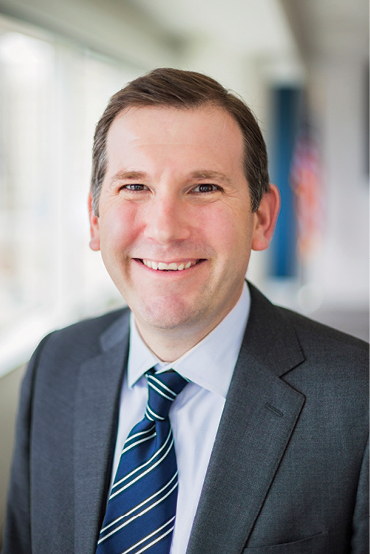 EL KOUBI: 2021 saw a rebound in project activity following the disruptions experienced in 2020. In 2020, VEDP announced 86 projects, creating 12,341 pledged jobs and $2.1 billion in expected investment. In 2021, VEDP announced 130 projects, creating 18,253 pledged jobs, and $35.4 billion. From 2020 to 2021, projects increased by 51%, new job creation increased by 48%, and investment increased by $33.3 billion. Since January 2022, VEDP has announced 65 projects, including signature wins like the LEGO Group, Rocket Lab, Boeing HQ, Raytheon HQ, Hilton HQ expansion, DroneUp and Plenty.
EL KOUBI: 2021 saw a rebound in project activity following the disruptions experienced in 2020. In 2020, VEDP announced 86 projects, creating 12,341 pledged jobs and $2.1 billion in expected investment. In 2021, VEDP announced 130 projects, creating 18,253 pledged jobs, and $35.4 billion. From 2020 to 2021, projects increased by 51%, new job creation increased by 48%, and investment increased by $33.3 billion. Since January 2022, VEDP has announced 65 projects, including signature wins like the LEGO Group, Rocket Lab, Boeing HQ, Raytheon HQ, Hilton HQ expansion, DroneUp and Plenty.
In which industry sectors is Virginia currently seeing the most success?
EL KOUBI: Industries seeing the most success this year (CY 2022) include Advanced Materials, Supply Chain Management, Data Centers, and Life Sciences. Here’s a breakdown:
- Advanced Materials: 10 announced projects, 2,399 pledged jobs, and $1.2 billion in expected investment.
- Supply Chain Management: 8 announced projects, 1,228 pledged jobs, and $364.5 million in expected investment.
- Data Centers: 3 announced projects, 200 pledged jobs, and $950 million in expected investment.
- Life Sciences: 10 announced projects, 1,034 pledged jobs, and $274.1 million in expected investment.
How confident are you that Virginia will win its fair share of the coming semiconductor manufacturing plant investment wave?
EL KOUBI: Virginia has a strong value proposition to lead in the semiconductor manufacturing space. The Commonwealth has a history in the semiconductor industry— both in the Richmond region and serving as home to Micron in Manassas for 20 years. We have successfully recruited semiconductor facilities before; we know what the industry needs, and we have strong partnerships in place to be ready for the next wave of investment. We are positioning ourselves for the semiconductor investment wave through various workforce development programs. Most notably, our custom, turnkey Virginia Talent Accelerator Program. Virginia continues to be a competitive state to do business and we have a strong labor market. Our state has university assets such as the VCU Microelectronics Center (VMC) which is located within the VCU College of Engineering. The VMC utilizes a clean room and state-of-art fabrication equipment to develop a variety of items including micro and nano devices and integrated systems. Virginia is known for university and industry partnerships and our universities stand ready to partner and support the semiconductor industry growth. For example, Micron and George Mason have an existing partnership related to chip manufacturing. Micron has provided funds for George Mason to renovate space into a state-of-the-art characterization and fabrication lab.
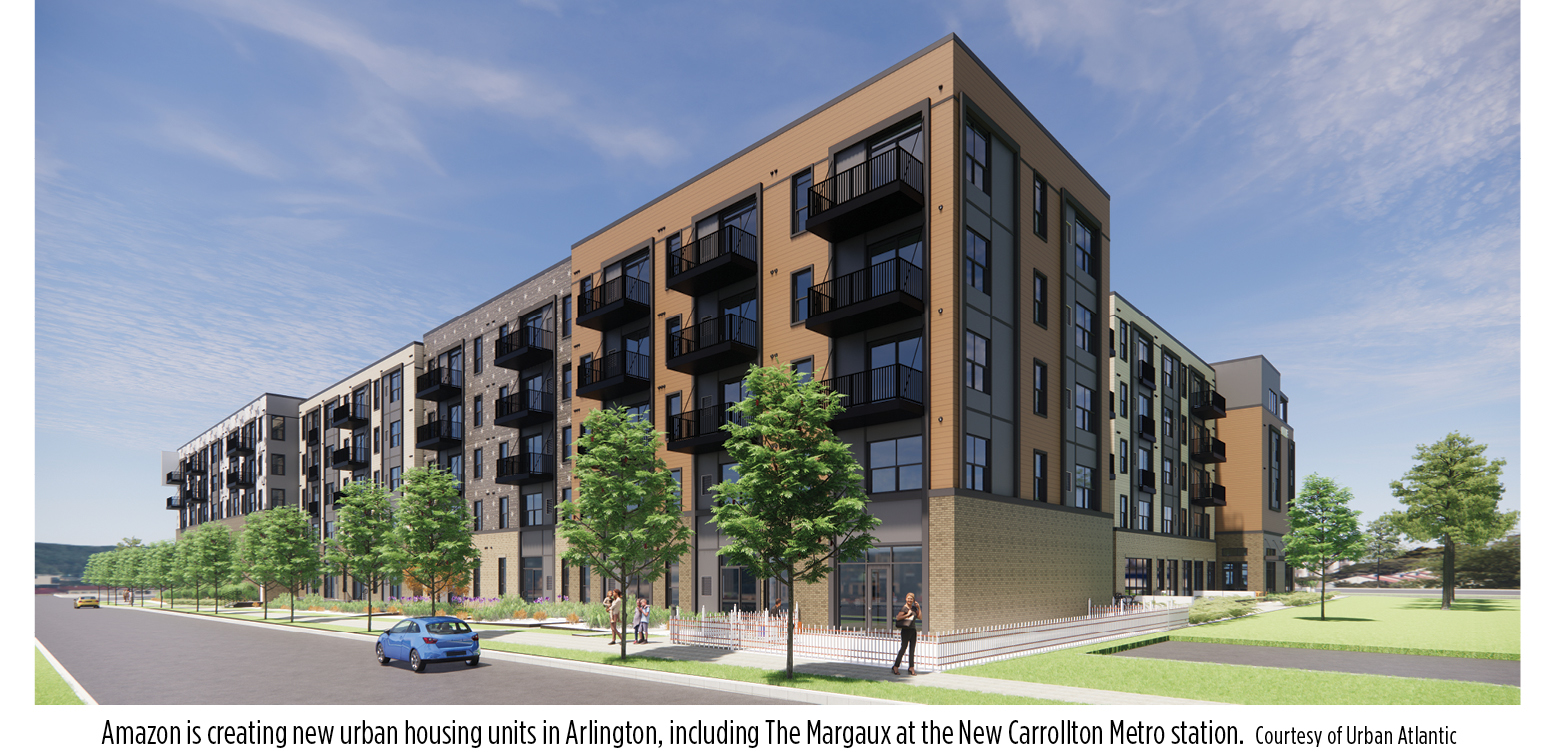
Can you give us an update on the Amazon HQ2 project in Arlington?
EL KOUBI: A company representative speaking in Prince William earlier this month confirmed publicly that Amazon has hired over 5,000 employees assigned to its HQ2 in Arlington and is on track to fulfill its pledge to create 25,000 corporate jobs there. Amazon’s first development at National Landing, Metropolitan Park, will open next summer. It is projected to have over 2 million square feet of office space. Ground should be broken on “The Helix,” a 350-foot-tall twisting tower that will be the centerpiece of HQ2, in a year or so.
Has Virginia adopted any significant changes to its workforce development programs recently?
EL KOUBI: The Virginia Office of Education Economics is a new entity in Virginia based here at VEDP. This office through research and data analysis will enable Virginia to make data-informed policy and practice decisions around workforce development and talent in the Commonwealth. This unique asset will position Virginia with knowledge about where there are needs, how to prepare the workforce, and how to upskill and reskill workers as jobs change with technology.
What are some of the biggest infrastructure projects currently taking place statewide?
EL KOUBI: Here are three. With over $750 million already invested as part of a $1.5 billion modernization and expansion project, The Port of Virginia is on track to create the deepest, widest, and safest commercial shipping channels and harbor on the East Coast by late 2024. Already equipped to handle ultra-large container vessels, the project will grant the safe, two-way movement of these ships. Completed investments have ensured that the port’s five terminals are moving higher volumes of cargo at ever-increasing efficiencies via truck, rail, and barge, resulting in a 66% increase in refrigerated cargo capacity.
Hampton Roads Bridge Tunnel expansion project is the largest highway construction project in Virginia’s history and one of the largest infrastructure projects in the U.S. right now. This transformative undertaking, scheduled for completion in November 2025, will widen the current four-lane segments along nearly 10 miles of the I-64 corridor in Norfolk and Hampton, with new twin tunnels across the harbor. The expansion will increase capacity, ease major congestion, and enhance travel time reliability.
Amtrak service to Roanoke is an extension of the highly successful Lynchburg train. The agency partnered with Amtrak, Norfolk Southern, and Roanoke to bring intercity passenger rail service back to the city for the first time in more than 34 years. Amtrak service returned to Roanoke in 2017 and DRPT recently announced the expansion to two daily departures from Roanoke to Washington, D.C. and cities in the Northeast and Southwest.
